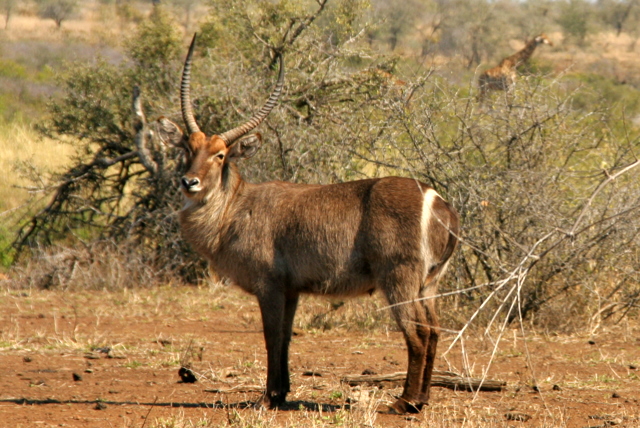They are settling in really nicely, and people can go in and visit with them (as long as they don't get too close!)
Then, about three days ago, we received a phone call that a woman had a marmoset as a pet that she could no longer keep because she was moving. We had a lot of votes about what to name her, but ultimately decided on Princess Maya. This was mostly a compromise, as I took one look at her and declared her "Princess Leia" (look at her, I'm sure you'll see why), but not everyone knew who that was. Marmosets are South American, so other people liked the sound of Maya. Princess Maya was the obvious compromise. She appears to be settling in well, as we determine what her diet should be and where is the best place to keep her. Unfortunately she stinks. Apparently marmosets scent-mark everything, and it is really a horrible smell. We have been going in with her to change her food and water and she jumps onto our shoulders to visit. We started wearing a blanket as a cape to protect our clothes from her smell, because otherwise you have to instantly launder everything after she touches it. Here is a visit we had recently:
All went according to plan until this afternoon, when I prepared her lunch and one of the volunteers, Luke, offered to bring it in to her. I opened the door for him and he snuck in. As he went to put her food down for her, she jumped onto his shoulder and bit his ear. We have absolutely no idea why she would bite him - she's visited with us dozens of times without problems - but obviously now we have to reassess how friendly she is and change our tactics a little bit. I think we have a special bond and she won't bite me - but I don't want to find that out the hard way.
The third new animal arrived just yesterday, a third meerkat friend for our two meerkats Alice and Gasper. His name is Tiki, and I don't have a photo of him yet, but he's super cute and seems to be getting along well with the other two so far. We also prepared a cage for some dassies, which are a kind of small rodent, who will arrive at some point to be determined.
So, anyway, a lot of excitement. In the midst of all this we had a group of kids last week who spoke very little English, and we had to make a lot of adaptations to our teaching program. We simplified everything, and replaced some of the most complicated lessons with a simple English vocabulary lesson instead. I also held a 1:2 remedial reading course instead of one of the harder lessons, and worked with two boys on really basic reading. It was very humbling to be working the same way I had been working with first graders in New York, but instead with 14 year olds who had slipped through the cracks without knowing how to read. We made a lot of progress in our two hours, but of course I wish I could have had more time to work with them.
On Wednesdays we take the kids to Makalali, the game lodge next door, and these kids were so cute as they asked all the employees questions about their jobs. I took a bunch of photos, I may share more later. For now, here's one of all the kids crowded under a car with the mechanic:
We also had two really teeny boys this week, who said they were 14 years old, but appeared to be much smaller/younger. One of the boys, Tshepo, was doing the chore of "cleaning the bird tables" - which are about six feet off the ground. So what did he do? Climbed the tree, of course!
And here is a photo that someone else took that I found on the staff computer and thought was funny. These boys did not want to get out of the pool, and I had to put on mean teacher voice to get them out and into the classroom:
There's my weekly update for now! We also went to the lodge next door this afternoon and played volleyball against their volunteers - which was very fun but involved getting very dirty and sandy, so it's shower time now. Got to rest up for the new group of kids who arrive tomorrow!







































